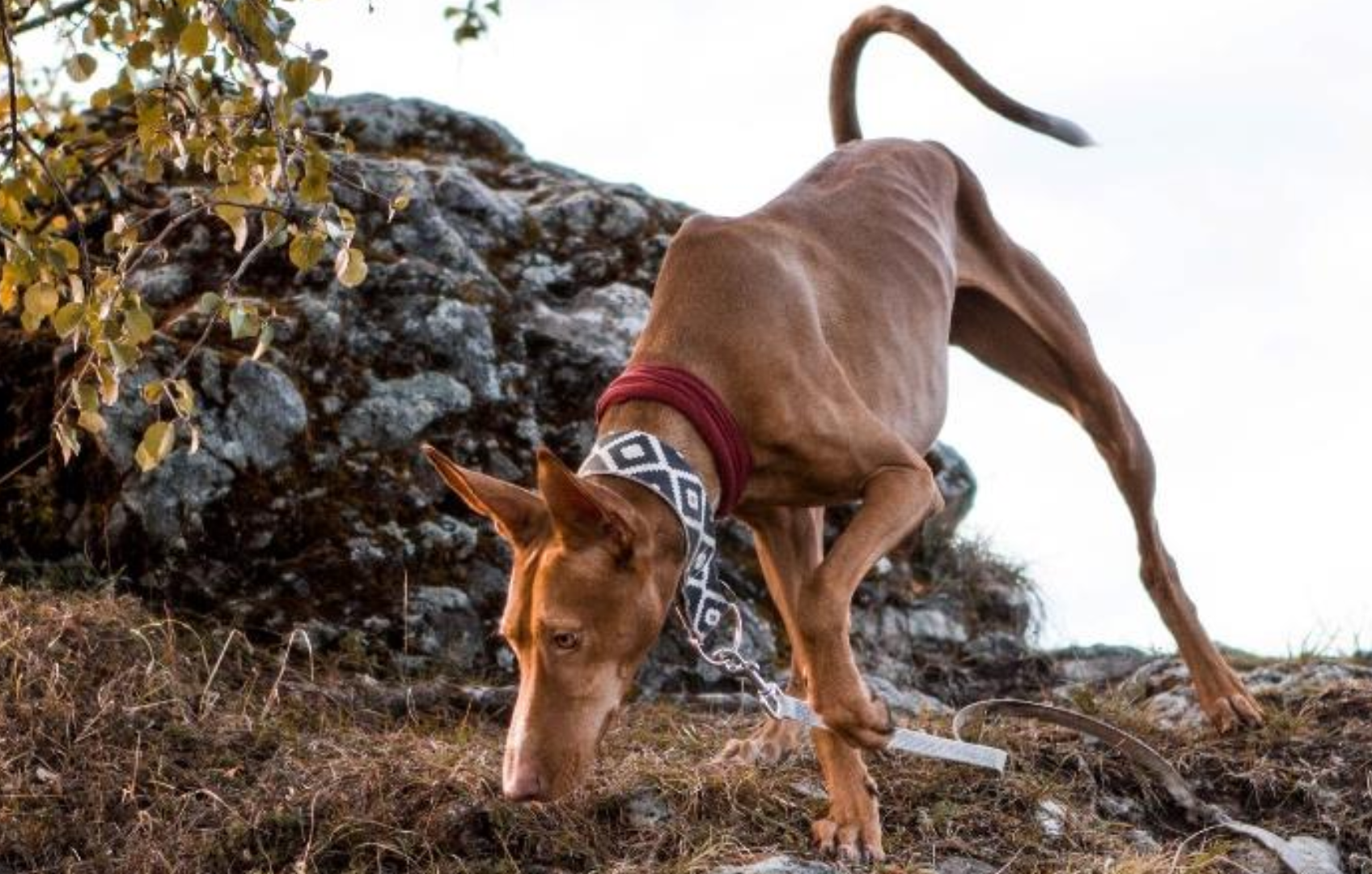The Canarian Warren Hound, also known as the Podenco Canario, is an ancient sighthound breed native to Spain’s Canary Islands. These elegant and athletic dogs were traditionally used for hunting rabbits across the rocky, volcanic terrain of their homeland. Their remarkable ability to hunt using both sight and sound, combined with their agility and stamina, makes them exceptional hunting companions.
History
The origins of the Canarian Warren Hound can be traced back to ancient Egypt, where similar sighthounds were depicted in tomb paintings and hieroglyphics. It’s believed that Phoenician traders brought these dogs to the Canary Islands, where they evolved to adapt to the unique landscape and hunting requirements of the archipelago.
The breed developed its distinctive characteristics through natural selection rather than intensive breeding programs, resulting in a hardy and efficient hunting dog. The Spanish Kennel Club officially recognized the breed in 1987, though the dogs had been serving as hunting companions on the islands for centuries prior.
Size and Physical Characteristics
These medium-sized dogs possess a distinctively elegant appearance. Males typically stand 55-64 cm (22-25 inches) at the shoulder, while females measure 53-60 cm (21-24 inches). Their weight ranges from 20-25 kg (44-55 pounds) for males and slightly less for females.
The breed is characterized by large, erect ears, a long, refined head, and an athletic build with a deep chest and tucked-up abdomen. Their most striking feature is perhaps their amber-colored eyes, which convey an alert and intelligent expression.
Personality and Temperament
Canarian Warren Hounds possess a gentle and even-tempered nature, making them wonderful companions beyond their hunting capabilities. They demonstrate remarkable intelligence and sensitivity, forming strong bonds with their families while maintaining a degree of independence characteristic of sighthounds.
These dogs are known for their quiet nature indoors but can show impressive energy and enthusiasm during exercise or hunting activities. They typically display reserve toward strangers without showing aggression, making them poor guard dogs but excellent family companions.
Health Considerations
The breed generally enjoys robust health, thanks to its development through natural selection rather than intensive breeding. However, like all breeds, they can be prone to certain conditions: Medieval luxating patella (knee problems), progressive retinal atrophy, and certain autoimmune conditions have been documented in the breed, though they remain relatively rare. Their average lifespan ranges from 12-14 years, with many individuals living even longer with proper care.
Care Requirements
Exercise forms a crucial component of caring for a Canarian Warren Hound. These dogs need regular opportunities to run in secure, fenced areas, as their hunting instincts and high prey drive mean they may chase small animals if left off-leash in unsecured spaces. They require at least one hour of vigorous exercise daily, though they adapt well to a more relaxed lifestyle indoors. Mental stimulation through training, puzzle toys, and interactive play helps prevent boredom and associated behavioral issues.
Feeding Guidelines
A high-quality diet appropriate for their age, size, and activity level is essential. Adult dogs typically require two meals daily, with portion sizes adjusted based on their exercise level and metabolism. As naturally lean dogs, their food intake should be monitored to maintain a healthy weight without allowing them to become too thin. Fresh water should always be available, particularly after exercise, as these athletic dogs can be prone to dehydration during intense activity.
Coat Color and Grooming
The breed’s short, smooth coat comes in various shades of red, ranging from light tan to deep mahogany, often with white markings. Some individuals may display white flashings on the chest, feet, and tip of the tail.
Their grooming needs are minimal, requiring only weekly brushing to remove loose hair and maintain coat health. Regular nail trimming, dental care, and ear cleaning should be part of their grooming routine, though the breed is generally very clean and requires less maintenance than many other dogs.
Compatibility with Children
Canarian Warren Hounds typically interact well with children, displaying patience and gentleness. However, as with any breed, supervision is essential, particularly with young children who may not understand how to interact appropriately with dogs.
These hounds can be excellent family pets when properly socialized from puppyhood, though their strong prey drive means they should be carefully introduced to smaller household pets.
Rescue and Adoption
Several organizations specialize in sighthound rescue, including some focused specifically on Podenco varieties. In Spain, organizations like SOS Podencos and Podenco Friends work to rehabilitate and rehome these dogs. While breed-specific rescue groups are less common outside of Spain, general sighthound rescue organizations often take in Canarian Warren Hounds and similar breeds. Potential adopters should research these organizations thoroughly and be prepared for the specific needs of a sighthound.
Breeding Organizations
The primary breeding programs for Canarian Warren Hounds are located in the Canary Islands and mainland Spain, where the breed is still actively used for hunting. The Real Sociedad Canina de España (Spanish Kennel Club) maintains breed standards and registries. Outside Spain, the breed remains relatively rare, though there are small numbers of registered breeders in other European countries.
Prospective owners should work with reputable breeders who prioritize health testing and maintaining breed standards while preserving the working abilities that make these dogs unique.
